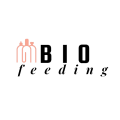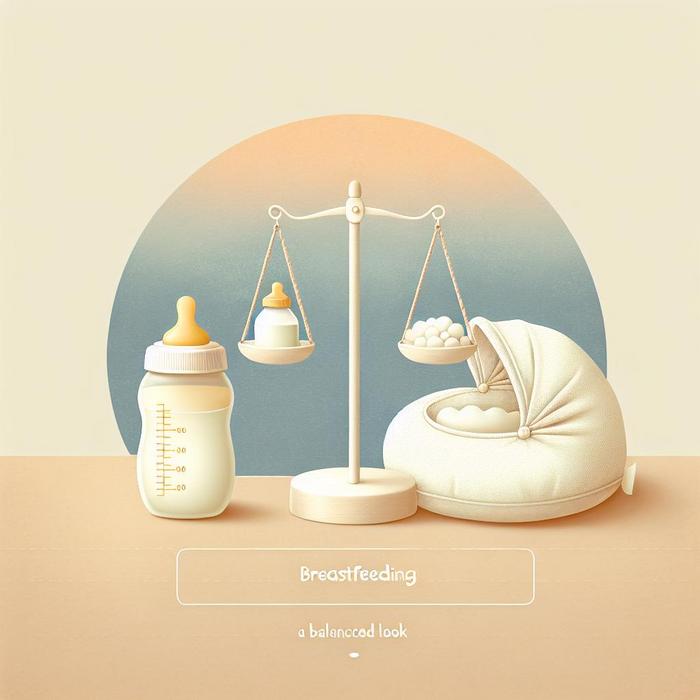Understanding the Different Feeding Options for Your Baby
Breastfeeding and formula feeding are two highly viable feeding options for your baby. Both have their unique advantages and potential drawbacks. With that said, it’s crucial to understand the ins and outs of each method to make an informed choice that best caters to your specific situation.
The Basics of Breastfeeding
Breastfeeding is a natural way of feeding your baby, and it’s highly recommended by pediatricians and health organizations worldwide. Here’s why:
– It provides optimal nutrition: Breast milk contains the perfect blend of vitamins, protein, and fat, which are essential for your baby’s development.
– It strengthens the baby’s immune system: Breast milk is loaded with antibodies that help your baby fight off viruses and bacteria.
– It promotes a strong mother-baby bond: The skin-to-skin contact during breastfeeding fosters emotional bonding.
However, breastfeeding may also present challenges. It can be physically demanding, time-consuming, and sometimes difficult for mothers to measure how much milk their baby is consuming. For more in-depth details about the pros and cons of breastfeeding, check out this resource on breastfeeding’s pros and cons.
Exploring The World of Formula Feeding
While breastfeeding is nature’s way of nourishing babies, formula feeding is an effective alternative, especially for mothers who may not be able to breastfeed for various reasons. Here are some advantages of formula feeding:
– It’s flexible: With formula feeding, others can help with feeding your baby, allowing for more freedom and flexibility.
– It’s easy to monitor: The amount of formula consumed by your baby is easily measurable, ensuring adequate nutrition is received.
– It alleviates breastfeeding issues: Some mothers struggle with breastfeeding. Formula feeding can address these concerns by providing a different option.
However, formula feeding comes with its own set of challenges, including the costs of formula and potential intolerance issues. If you’re interested in learning more about formula feeding, WebMD’s guide on breastfeeding vs formula offers more insights.
Being informed about both breastfeeding and formula feeding can make your decision-making process easier. Remember, it’s about choosing what’s most suitable for you and your baby. You can always seek guidance from healthcare professionals or explore resources like KidsHealth and HealthyChildren.org to further inform your decision.
Making Your Choice
Whether you choose breastfeeding, formula feeding, or a combination of both, know that there’s no one-size-fits-all answer. Your choice should prioritize your baby’s nutrition and health, as well as your comfort and well-being.
For more insights regarding nurturing your baby, whether it’s through yoga with your baby or by finding the best baby swings, check out our other articles. We’re committed to helping you experience the most joyful and fulfilling journey of parenthood.
Combining Breastfeeding and Formula Feeding
It’s not a rule set in stone that you can only choose one method. Combining breastfeeding and formula feeding is a common practice for many mothers. This method can bring about a balanced approach, leveraging the benefits of both while mitigating certain disadvantages.
Some benefits to combining methods include:
– Eases breast engorgement: Breastfeeding moms often experience discomfort from engorged breasts. Supplementing with formula can help ease this discomfort by reducing excess milk production.
– Allows others to help with feeding: With formula, your partner, family members, and caregivers can play an active role in feeding, giving you more time to rest and recover.
– Provides a backup plan: If you are not able to breastfeed temporarily due to illness or medication, your baby can still be fed with formula.
Various factors can affect your decision to combine breast and bottle feeding, such as your baby’s preferences, your lifestyle, and the consistency of your milk supply. To gain further insight, you might want to read the NHS guide on how to combine breast and bottle.
Key Considerations When Choosing Feeding Options
Your choice of feeding method should be influenced by a number of individualized factors, such as:
– Baby’s health: Some babies might have difficulty breastfeeding due to reasons like premature birth, while others might have an intolerance or allergic reaction to certain formulas.
– Your health: Medical conditions, medications, or treatments may interfere with your ability to breastfeed safely.
– Your comfort: Both breastfeeding and formula feeding come with their own challenges. The method that causes the least discomfort to you might be the best choice
– Your lifestyle: Your work schedule, commitments, and daily routine can significantly influence your feeding choices.
Remember, it’s not just about what’s best for your baby, but also about what works best for you. If you’re feeling overwhelmed, talking to healthcare professionals or perusing resources like https://www.mountsinai.org/health-library/special-topic/breastfeeding-vs-formula-feeding can provide you with much-needed guidance.
Meeting Your Baby’s Nutritional Needs
Regardless of the feeding method you choose, the most important thing is ensuring your baby’s nutritional needs are met. Whether it’s breastfeeding, formula feeding, or a combination of the two, each method should provide the essential nutrients needed for your baby’s growth and development.
While breast milk is considered the most nutritional option, formula has been designed to closely mimic the nutritional composition of breast milk. The American Dietetic Association and the American Academy of Pediatrics assure that both breast milk and formula provide adequate nutrition for the baby’s first year.
For more detailed feeding recommendations and guidance, you can visit resources like the Center for Disease Control’s section on breastfeeding, CDC breastfeeding recommendations, or resources like Medlineplus, which provides feeding instructions for both breast and formula feeding.
In the end, the choice between breastfeeding, formula feeding, or a combination of both, is deeply personal and multifaceted. It is a decision that you are empowered to make for your baby. Rest assured that whatever choices you make will lead you to a rewarding journey of parenthood.

